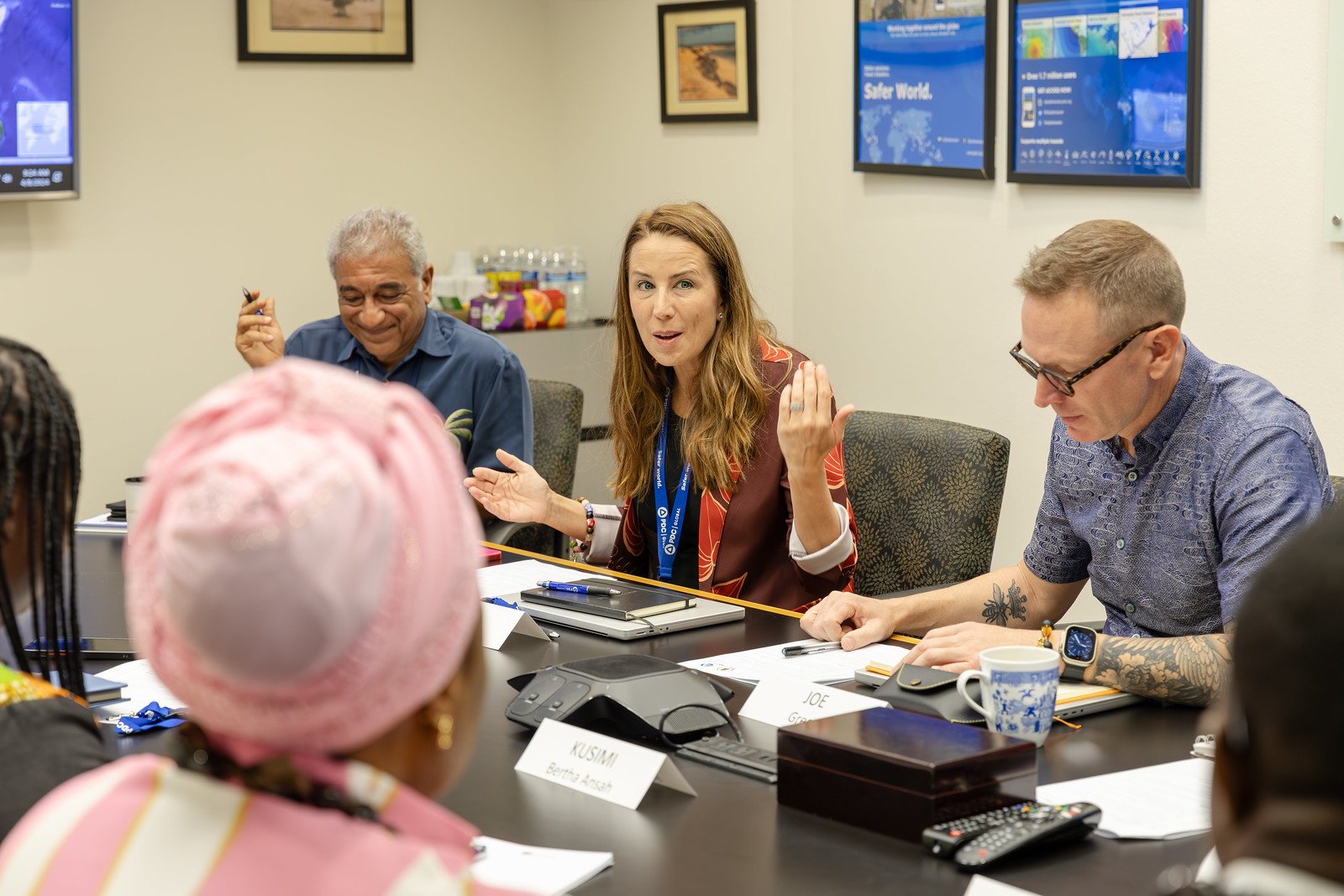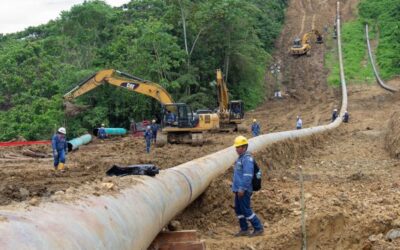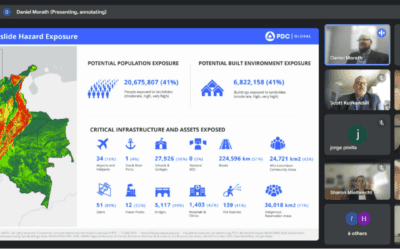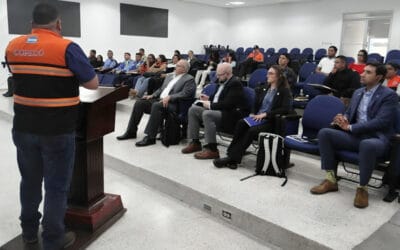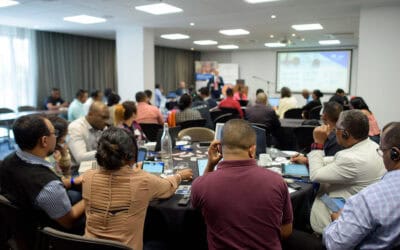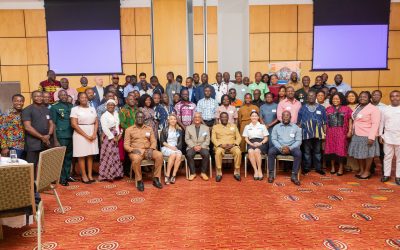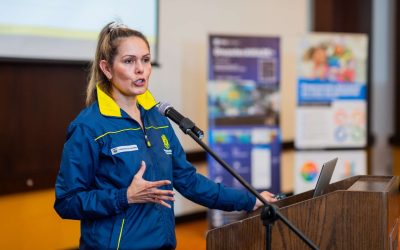Kihei, Hawaii–The Pacific Disaster Center (PDC), a University of Hawaiʻi applied science and research center based in Maui, hosted a bilateral exchange with a delegation of nine disaster management experts from the country of Ghana, representing the National Disaster Management Organization (NADMO), during the week of April 8-12, 2024.
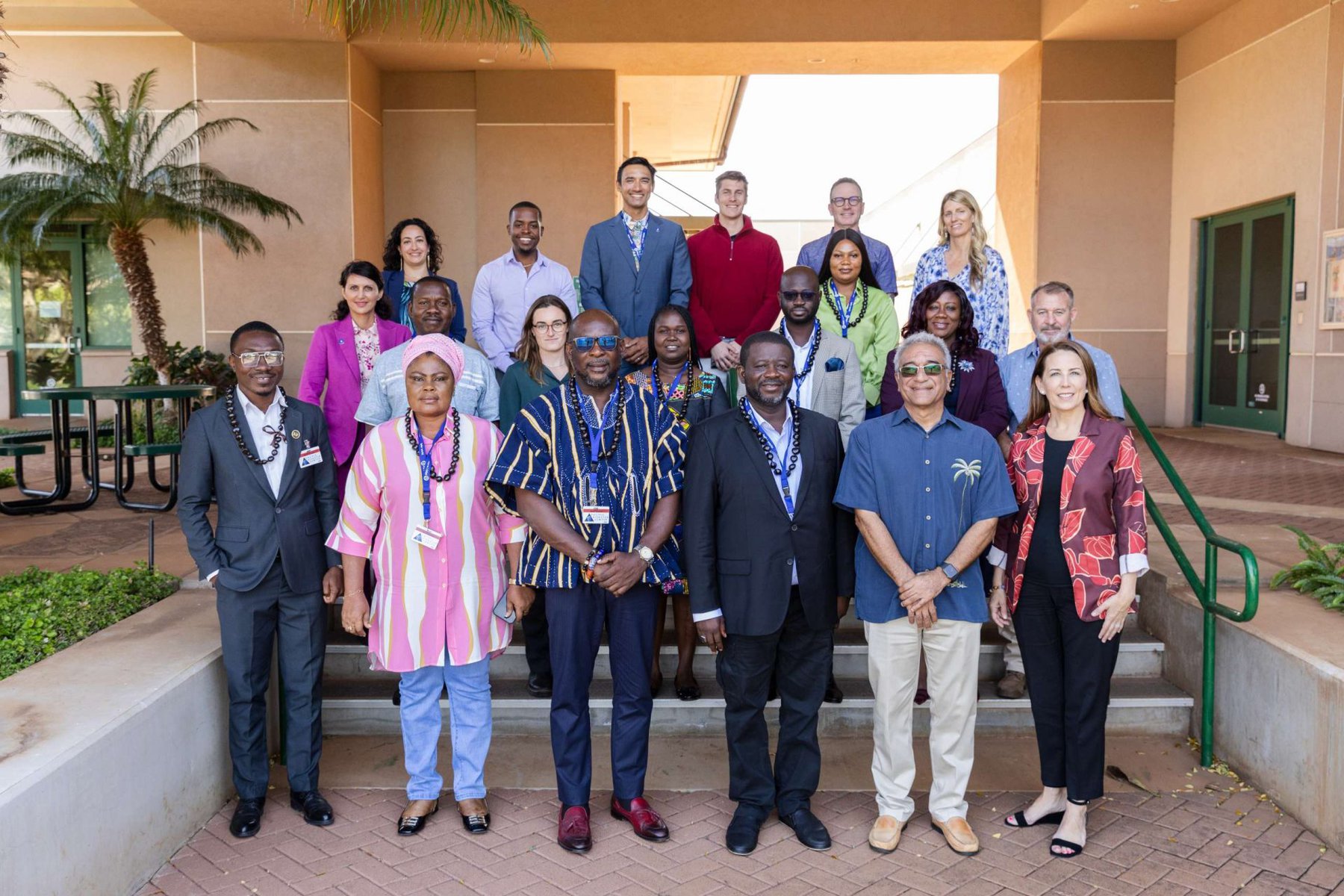
The exchange was conceived as part of an ongoing collaboration between PDC and Ghana on its National Disaster Preparedness Baseline Assessment. With increasing impacts from extreme rains and fires on the horizon for both Maui and Ghana, addressing the elements that make communities more vulnerable and less resilient, and learning from collective experiences, was a focus for all stakeholders.
The exchange follows a wave of historic natural disasters that swept across the globe, impacting both Maui and Ghana in 2023—the hottest year on record since global record-keeping started in 1880.
Revered as a tropical paradise, deadly wildfires on Maui ravaged the drought-stricken town of Lahaina on August 8, 2023, claiming the lives of 101 people and displacing more than 8,000 residents. One month later, on September 15, 2023, the country of Ghana’s Akosombo Dam was at risk of failure from unprecedented rainfall, necessitating a controlled dam spillage event that displaced 39,333 people and led to the destruction of properties and livelihoods within nine districts downstream.
Due to increasing impacts from extreme rains and fires on the horizon for both Maui and Ghana, addressing the elements that make both communities more vulnerable and less resilient was a focus for all stakeholders during the exchange.

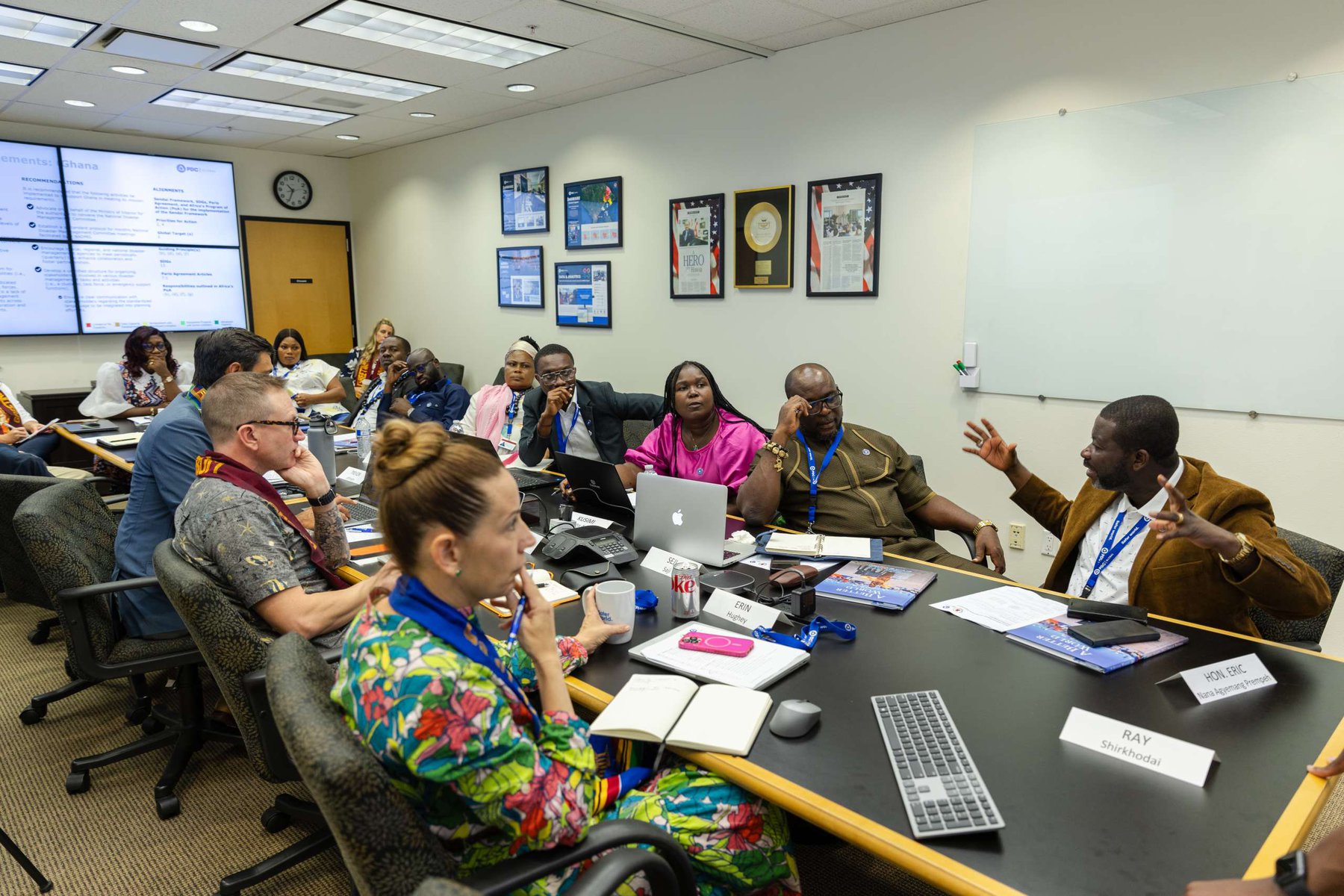
“Ghana was exposed to prolonged rainfall which led to the dam spillage of 2023. Over 80,000 individuals were affected due to the overflow of river bodies upstream and the impact of the dam spillage. The affected population includes different demography of vulnerable groups including persons with special needs. I am delighted to be present here at the Pacific Disaster Center headquarters, not only in the spirit of institutional solidarity but mainly for the opportunity to identify best practices towards disaster risk reduction.”
—Director General of Ghana’s NADMO, Hon. Eric Nana Agyemang-Prempeh
Director General Agyemang-Prempeh emphasized that the technical exchange between PDC and NADMO promised immense benefit to other disaster management institutions throughout the entire subregion of West Africa. “Ghana’s capacity over the years has been of mutual benefit to all neighboring countries, most notably through training exchange programs, relief support, and response operations.”
PDC’s Executive Director Ray Shirkhodai reinforced the Director General’s sentiments, expressing the importance of collaboration in building the capacity of communities to cope with extreme changes to hazard profiles globally.
“The disasters our communities are contending with are just two among dozens of catastrophes that inflicted suffering for millions of people in 2023. The increase in frequency and severity of disasters underscores the need for improved risk assessments, advanced early warning systems, and partnership based resilience-building efforts worldwide.”
—PDC’s Executive Director Ray Shirkhodai
The weeklong engagement included a review and collaboration on the preliminary final results from Ghana’s National Disaster Preparedness Baseline Assessment. Through this partnership and NDPBA process risk, vulnerabilities and unique coping capacities of Ghana were identified. Further NADMO leadership shared the challenges and success they experience as they focus on ensuring robust disaster management frameworks for the nation.
The assessment includes anticipated hazard impacts that were developed using PDC’s advanced data science, historical hazard data, and the world’s best hazard models.
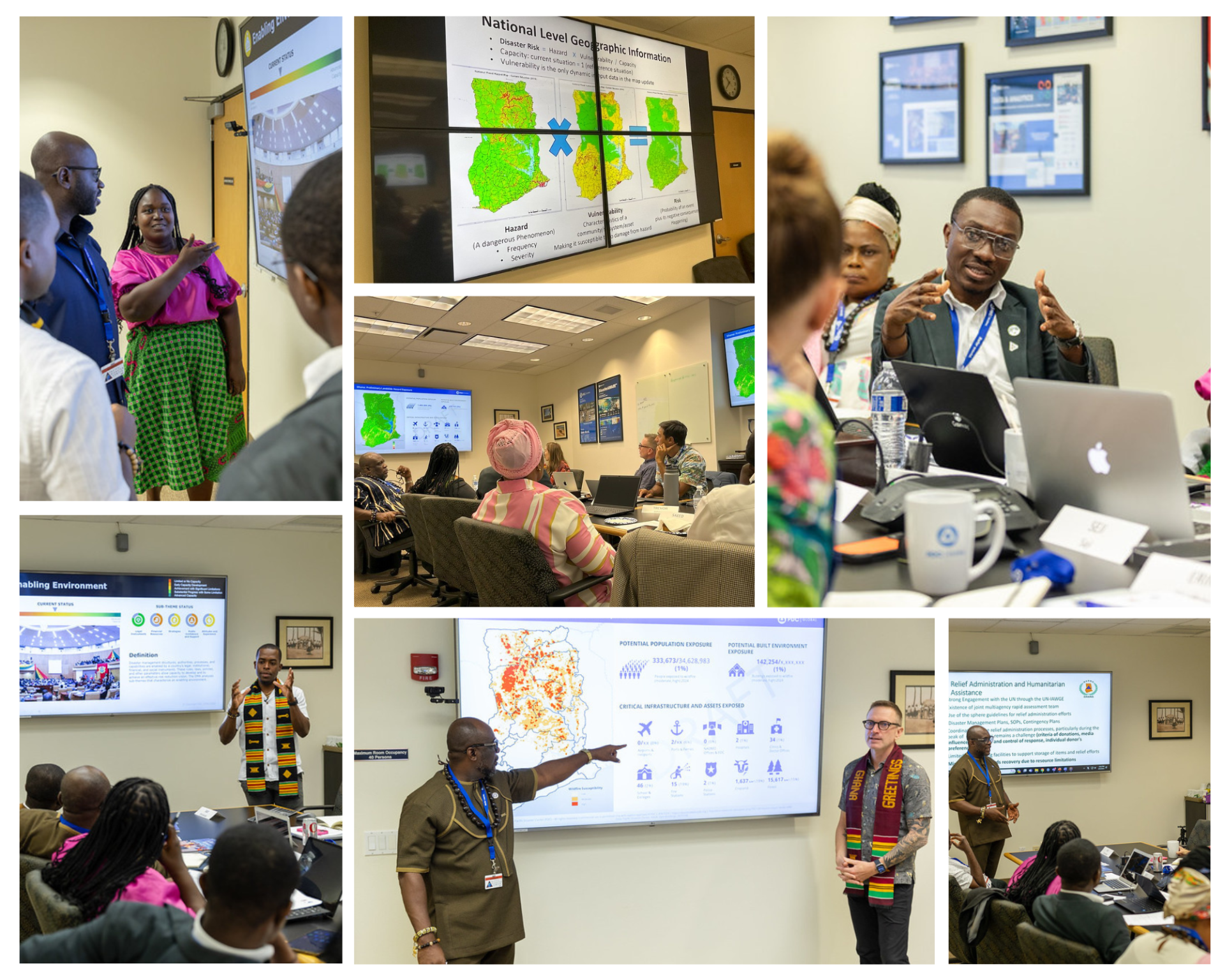
“PDC is working with countries around the world to reduce disaster risk through the Center’s internationally recognized baseline assessment program which includes a risk evaluation at the national and local level. By extending the use of assessment data and analytics into our multi-hazard early warning and risk intelligence platform, DisasterAWARE, countries like Ghana can apply risk information to their daily operations—acting early to save lives and improving the disaster planning, response, and mitigation process.”
—PDC’s Director of Global Operations Dr. Erin Hughey
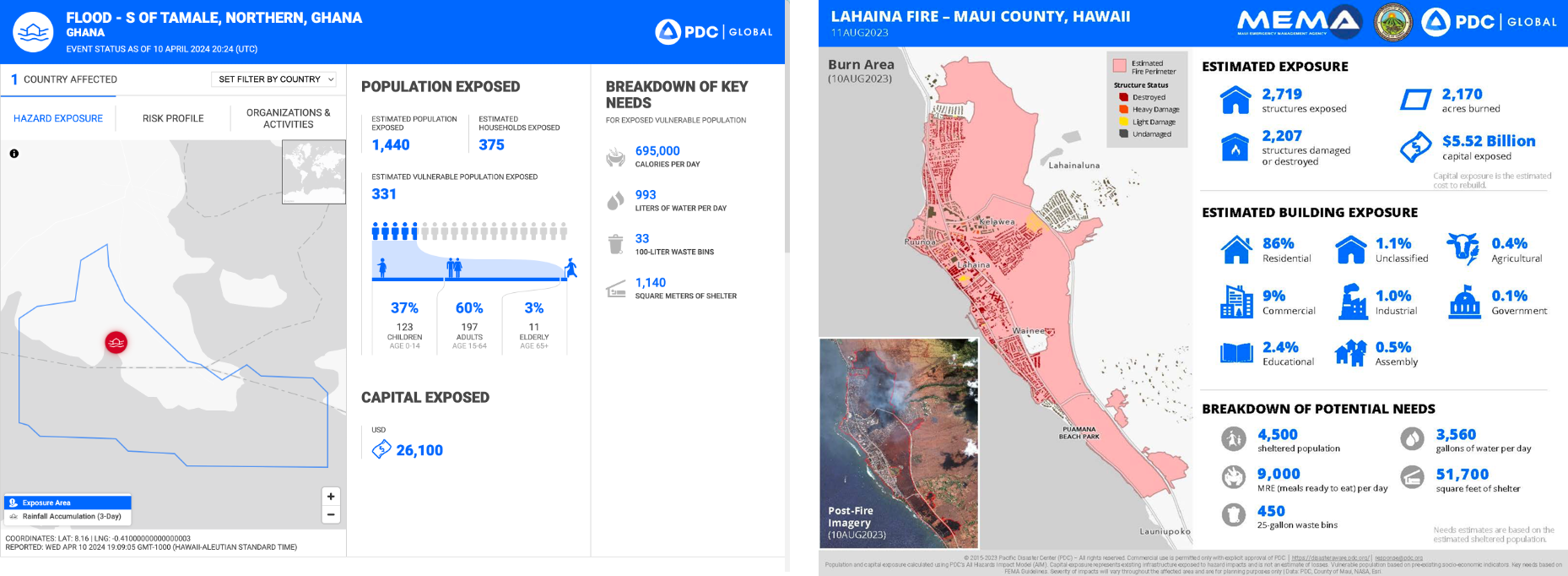
Another goal of the assessment, said Hughey, is to ensure country recommendations align with national priorities and UN 2030 goals, improving eligibility for disaster risk reduction financing and investment partnerships.
The delegation from Ghana and PDC also visited the Maui County Fire Department (MFD) for a briefing on the recent Maui wildfire disaster and the unique firefighting apparatus available in Maui. During a recent visit to Ghana, PDC was able to meet with the Ghana Fire Administration.
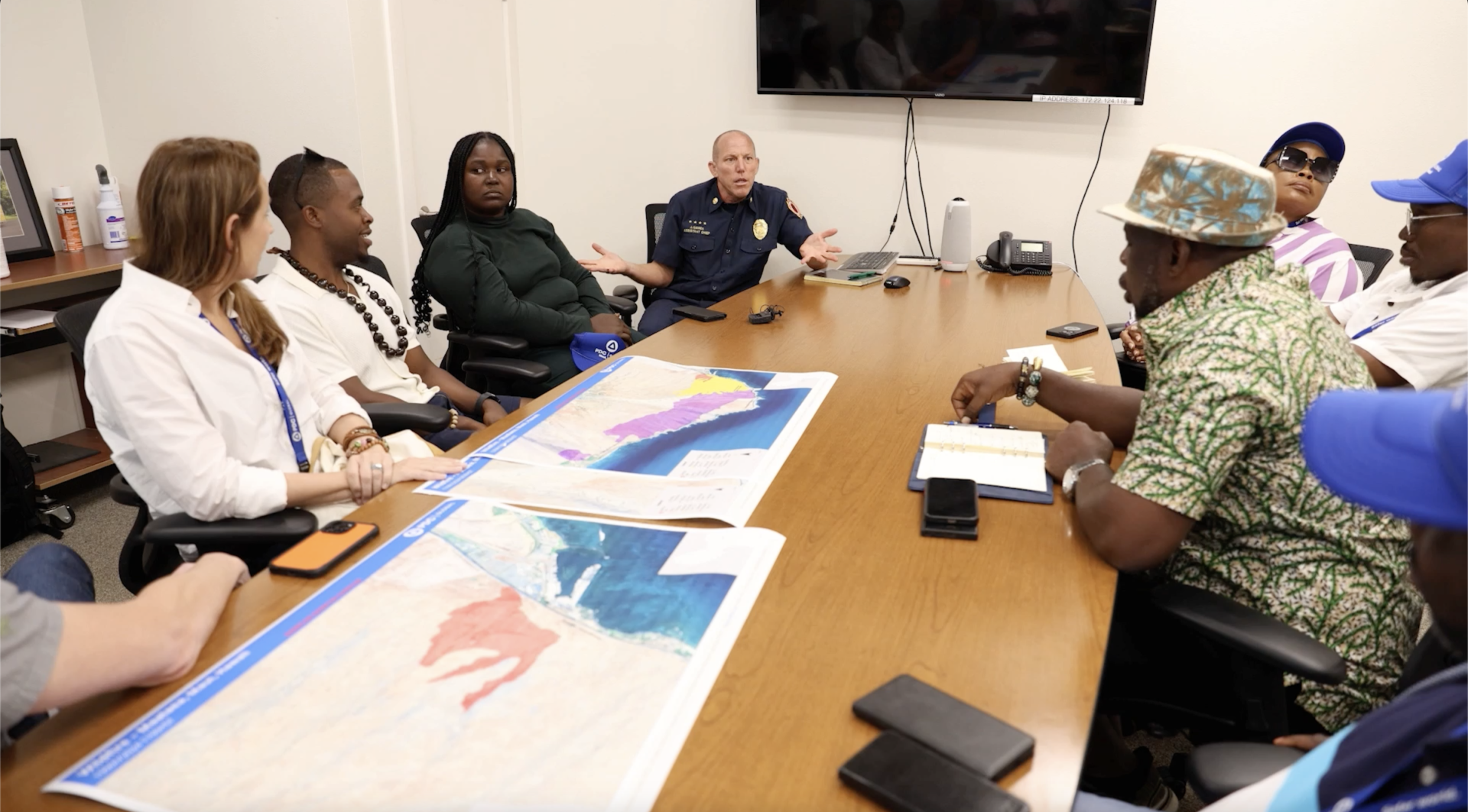
“Imagine your two worst fires in the history of the state are happening at the same time in the same jurisdiction, plus two more fires. It’s a high wind event, basically and we can’t use helicopters and the cell phones are down.”
—MFD Assistant Chief Jeffrey Giesea
When asked by NADMO’s Deputy Director General what went well in Maui’s response, Geisea said, “Everybody was working together. Despite everybody being stressed as much as you can imagine, we’re all doing our best. Everybody feels like everybody is giving their best effort to try to solve this problem, despite the fact that a lot of the tools that we normally use were not available, such as air support.”
Design by PDC Global
NADMO and MFD discussed the long-term engagement of their communities in emergency education and training programs and brainstormed ideas that help would help bolster and sustain their efforts.
“Our success story, concerning the spillage of the dam is the fact that we didn’t record even a single death. That was the result of planning and the full-scale simulation exercise that we did with the community through support of the UN agencies and United States government like USAFRICOM and North Dakota;s National Guard, and it’s really helped us.”
—Director General Agyemang-Prempeh on the dam spillage exercise which took place in Ghana in May 2023.
“Exchanges between different stakeholders like PDC, Ghana, and the Maui Fire Department are commendable because they help to forge new and innovative strategies for managing hazard risks. This includes sharing and optimization of limited resources, fortification of response operations, and improved planning for resilience to the increase in hazards we all face,” said the University of Hawaiʻi’s President Dr. David Lassner who lauded the commitment of all stakeholders to disaster risk reduction.
“On our current trajectory, no place on Earth will be left un-impacted by extreme disasters, so the work PDC is doing to build strong partnership networks and support risk-informed decision making is more important now than ever.
PDC-GHANA PHOTO GALLERY
